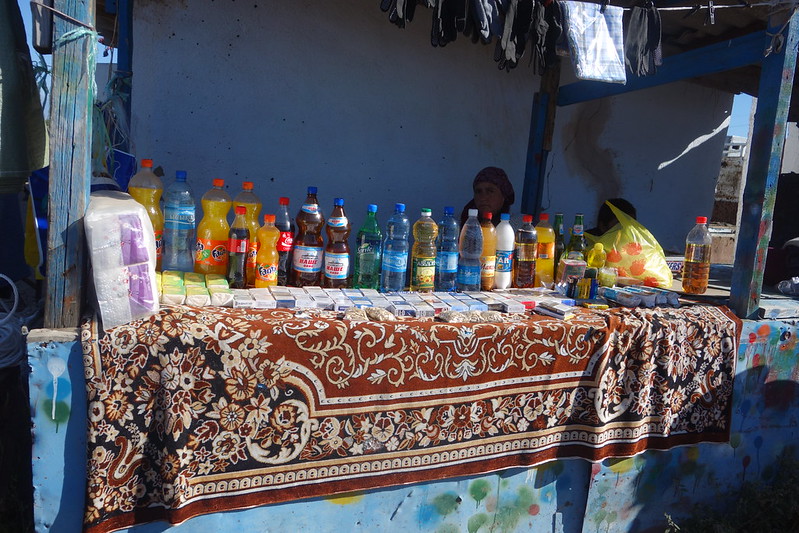The end of Biskek's bazaar
Kyrgyzstan is shaken by protests from market shopkeepers, who refuse to adopt government-mandated cash registers. Prime Minister Žaparov: 'Our main aim is to fight poverty, we want to lift the people out of misery', overcoming all forms of 'grey economy'.
Bishkek (AsiaNews) - Kyrgyzstan has been shaken for some time, particularly in recent days, by protests from market shopkeepers, who refuse to adopt the cash registers (Kkm) imposed by the government.
Entrepreneurs from various cities, especially in Bishkek and Tokmak, also supported the protest, asking to leave the current system in place, whereby it is sufficient to obtain a license to display your items on the counters.
The government has granted a further moratorium of six months without checks and fines, after which the measure will become definitive and stringent to "close the era of the bazaar economy", as Prime Minister Akylbek Žaparov commented.
According to the traders of the large Dordoj Motors market in Bishkek, interviewed by Radio Azattyk, "the Kkm system is not suitable for us, we cannot work like this, not because we want to avoid paying taxes, we have always paid them regularly... but if we sell 100 som of cigarettes and we don't register them in the Kkm, we get a fine of 13 thousand som, which doubles and triples at subsequent times, and this is not acceptable".
The demonstrators were met by the mayor of Bishkek, Ajbek Džunušaliev, who promised to take the requests into account if the protests were stopped: “no problem can be solved with shouting, we can meet calmly without freezing in the street, choose a commission of 10-15 people and we talk about it, as we have already done with the market managers". At Dordoj Motors, mainly agricultural products, food and car parts are sold, and over 2000 people work there.
Public protests have also been going on for several days at the Bulak market in Tokmak, and the local mayor Maksat Nusuvaliev explained to the press that four large markets are active in the city, and the administration has various negotiations underway with all the representatives of these centers.
“Among them, in reality, there are both those for and against the KKM, the fact is that most people do not understand the system, and we must have the patience to explain it without wasting time on useless demonstrations,” commented Nusuvaliev.
Demonstrations and strikes in recent days have also been organized in the Oš region, in the other markets of the capital Bishkek, and in the cities of Talas and Karakol. President Sadyr Žaparov himself created a working group to evaluate the extent of these demonstrations and the demonstrators' demands.
The six-month moratorium was announced by the President of the Revenue Agency, Islambek Kydyrgyčov, at the conclusion of the commission session, stating that "this period of suspension will be dedicated to work to clarify the functioning of the system, and allow people to get used to it to it, and if necessary we will extend the moratorium." 30 thousand Kkm devices will be delivered free of charge to entrepreneurs.
Prime Minister Akylbek Žaparov also held several meetings, noting that "in the country it is still difficult to understand the extent of this change in the tax regime, and we must make information about it more complete... the bazaar economy was based on primary accumulation of capital, and this is now a relic of the past”.
The State intends to "work for the people", as all political leaders assure, and not "advance the interests of the masters and the powerful", those "narrow circles of people" who have corrupted the entire society without ever being punished.
As the president assures, "today we enjoy a broad and certain consensus from the population", which approves the programs with which state budgets support the construction of new infrastructures and the "improvement of the standard of living" of all citizens. “Our main aim is to fight against poverty, we want to lift the people out of poverty”, overcoming every form of “grey economy”, Žaparov solemnly promises, starting a new life starting from the electronic cash registers of the market stalls.
Photo: Flickr / Malcom Williams







.png)










